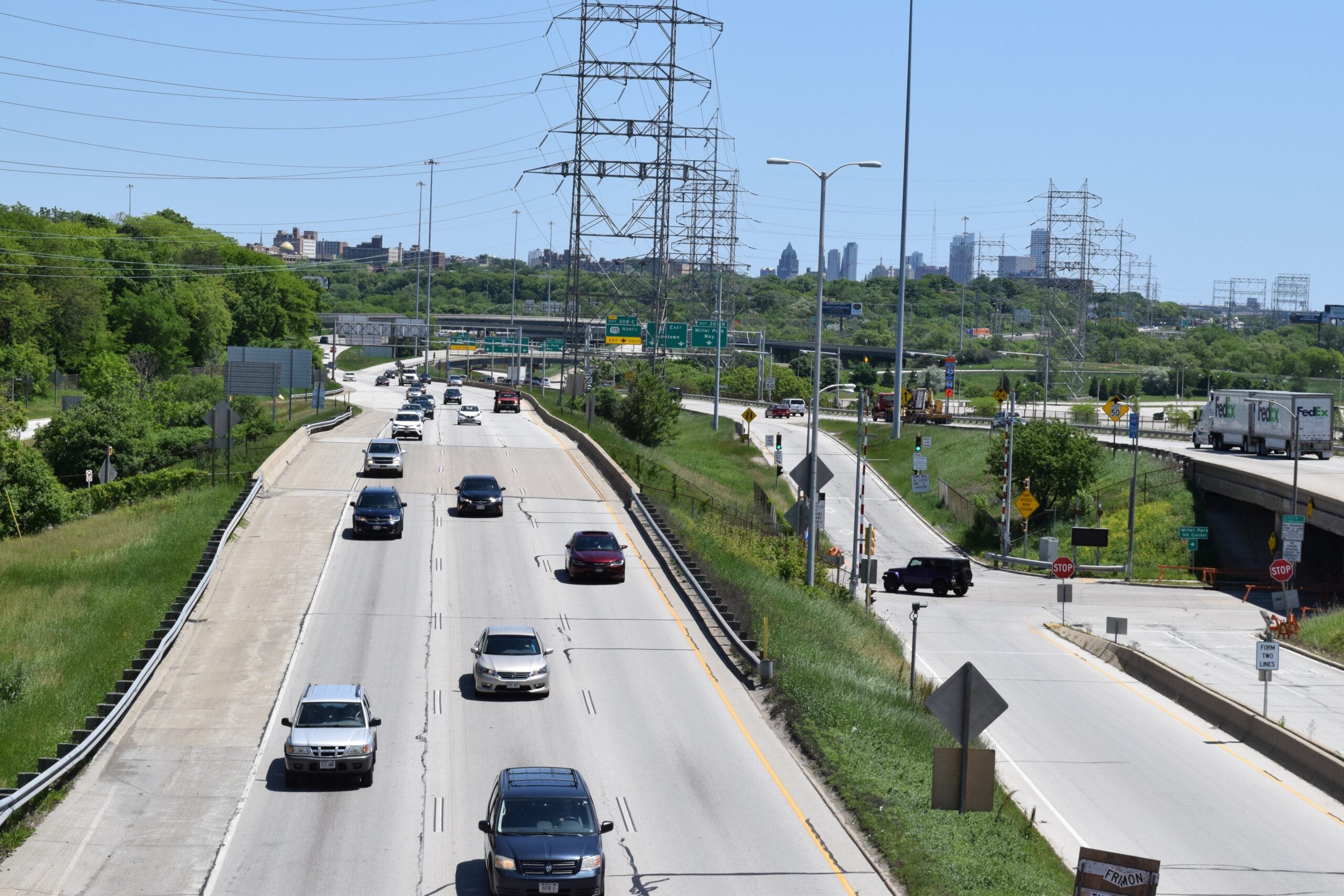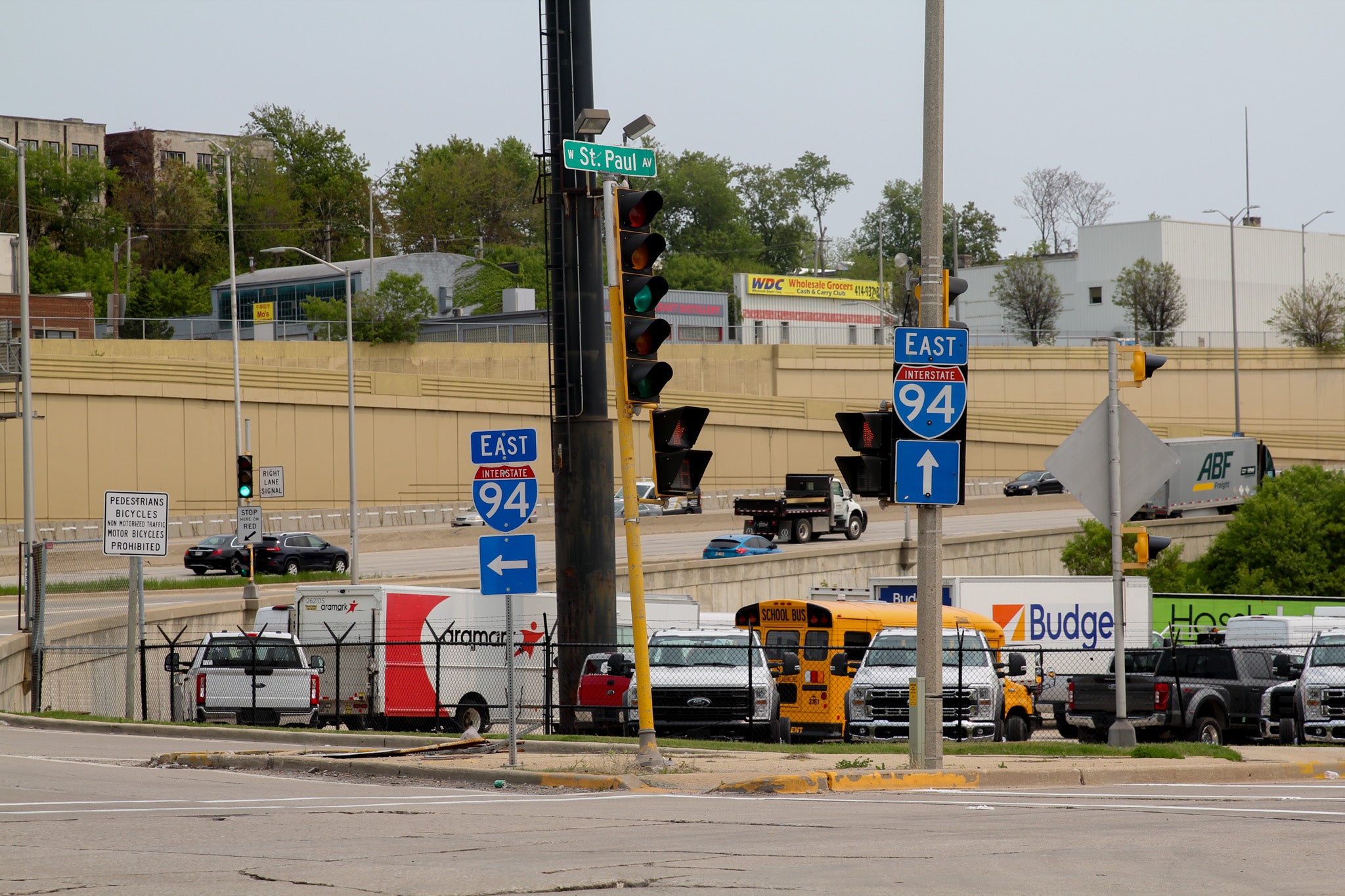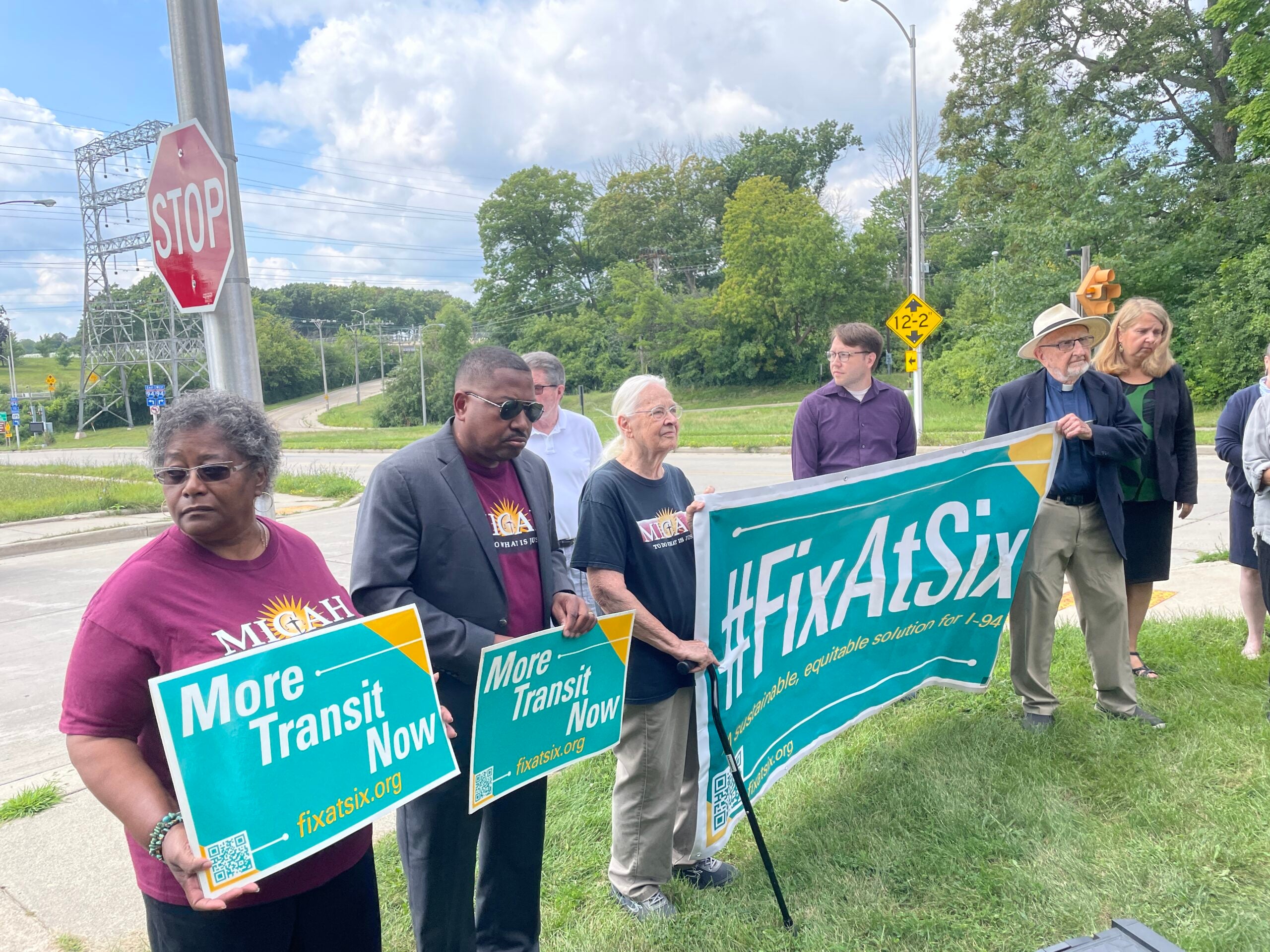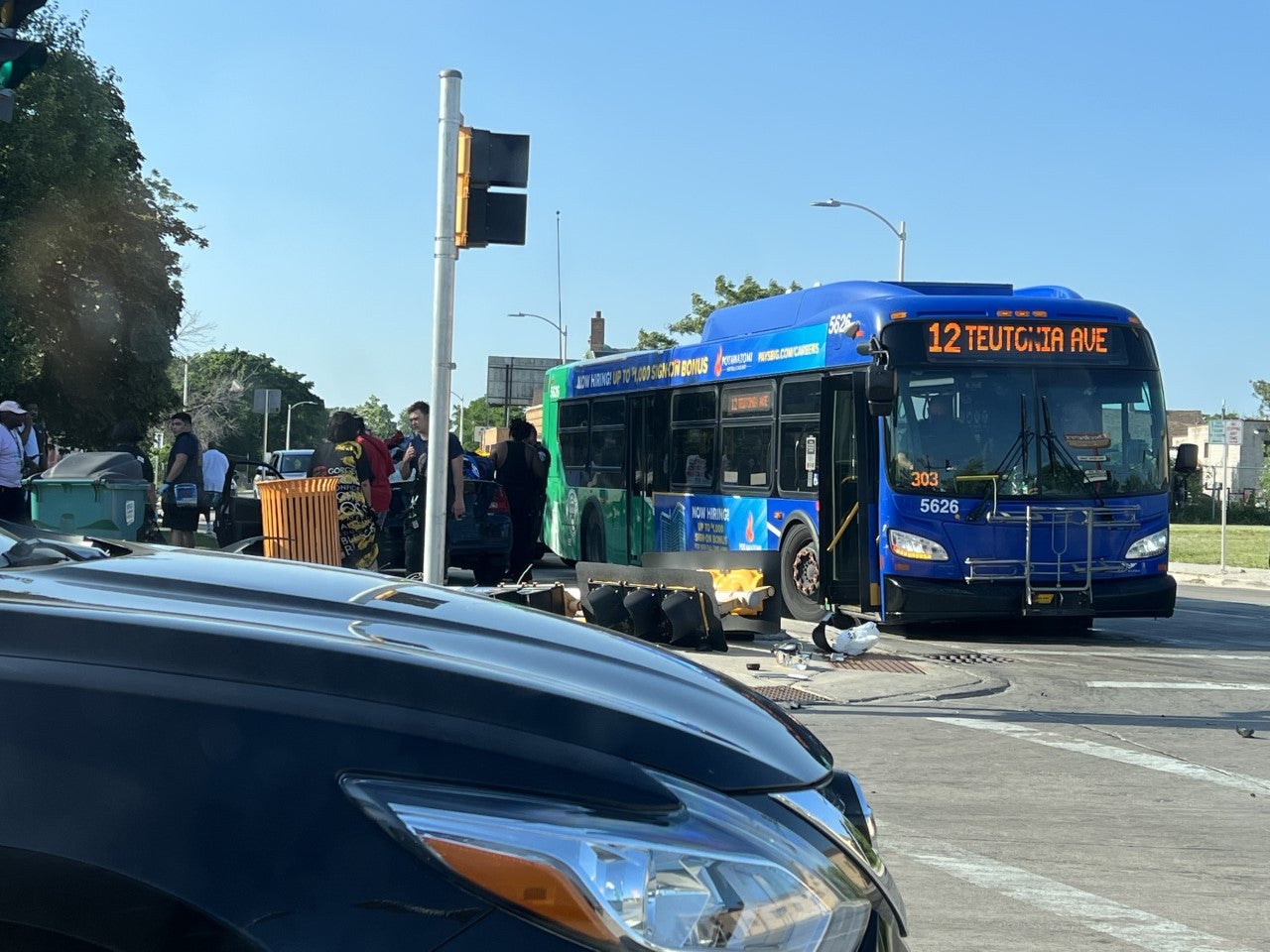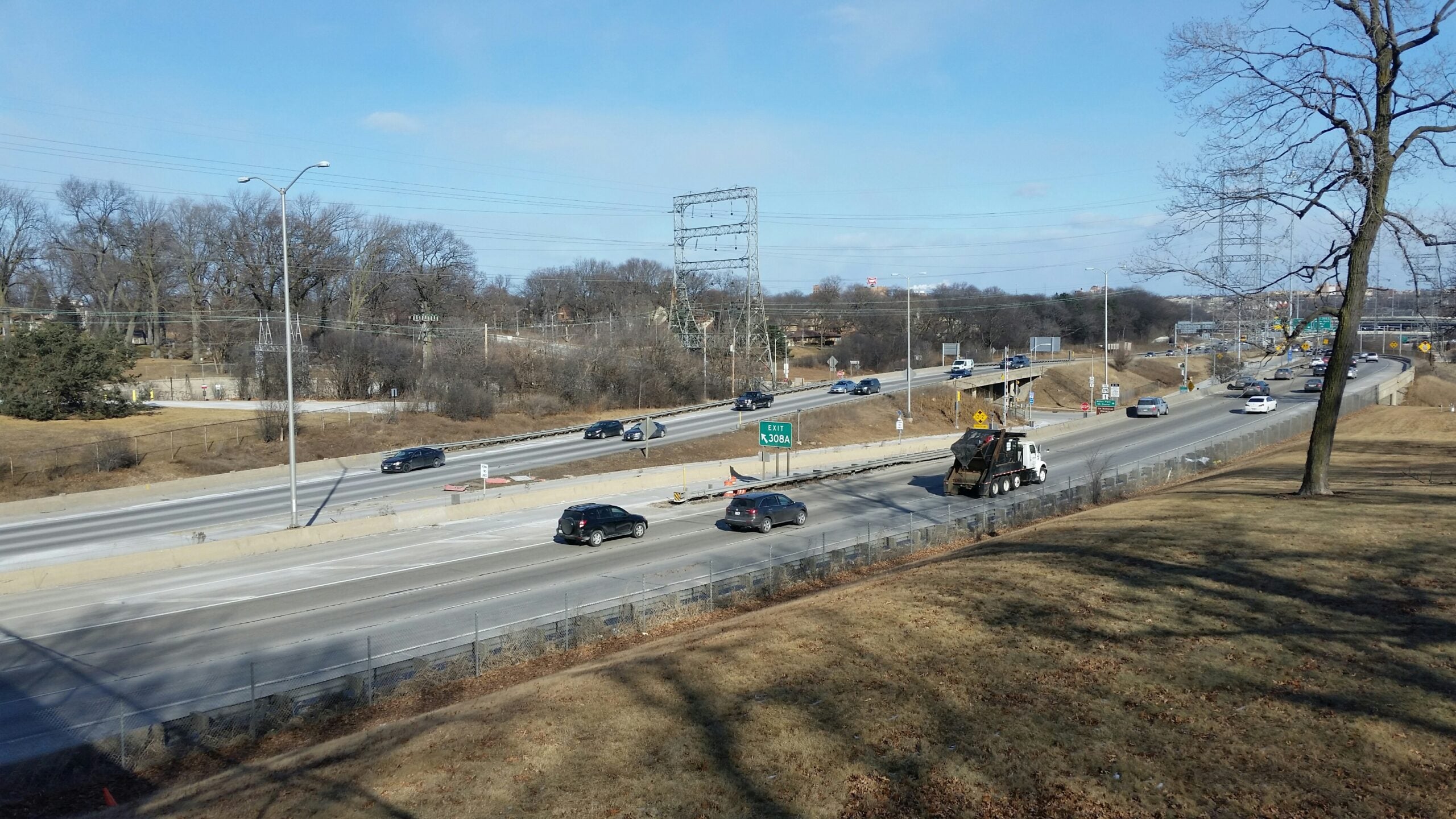Milwaukee-area commuters will see a widened Interstate 94 on the city’s west side if a new recommendation from the Wisconsin Department of Transportation is adopted.
The department announced its preferred plan for the $1.2 billion highway expansion on Friday. It would expand the road from six lanes to eight — four lanes in each direction — on about a 3.5-mile stretch of highway that passes the Brewers’ American Family Field. Its recommendation comes some 12 years after plans for the highway became a political issue, and more than 18 months since the state put it on hold in order to study its environmental impact.
Two public hearings in December will be the next opportunities for advocates to weigh in. If the project gets federal approval and is funded, construction would begin in 2025.
News with a little more humanity
WPR’s “Wisconsin Today” newsletter keeps you connected to the state you love without feeling overwhelmed. No paywall. No agenda. No corporate filter.
The expansion was opposed by some environmentalist groups and by members of the Milwaukee City Council. Some advocates have coalesced around an alternative plan called “Fix at Six” which would have made improvements to the roadway while adding bus rapid transit and bike lanes nearby, but which would not have added the additional lanes of traffic.
In its release, state transportation secretary Craig Thompson said the department “placed a high priority on public involvement during the … reevaluation, which resulted in significant changes to the previous proposal.”
Those changes include a smaller overall footprint for the project, including a reduction in the number of nearby businesses and homes the state would buy to make room for the construction from 11 to eight. The release said the department would also invest in “improving bicycle and pedestrian accommodations across I-94” and would connect the Hank Aaron State Trail and the Oak Leaf Trail.
But those adjustments did not go far enough for those opposed to adding lanes.
“The truth is we kind of have a highway industrial complex,” said Gregg May, transportation policy director with the environmental group 1000 Friends of Wisconsin. “There’s a lot of interest in expanding highways.”
In the case of the environment, the problem is that more gas-burning cars on the road means more carbon emissions into the air, contributing to climate change. Leaders of groups such as 1000 Friends, Midwest Environmental Advocates and the Wisconsin chapter of the Sierra Club have said the project will make climate change and air pollution worse. Some racial justice advocacy groups also worry about the impact of the expansion on predominantly Black neighborhoods.
Advocates for the proposal include local business groups as well as labor unions. Thompson has called the highway “the busiest artery in the state” and said repairing and expanding it would help boost the state’s economy. A 2021 letter signed by carpenters and operating engineers unions in the region said the project “would create up to 10,000 good-paying and family-supporting jobs, many of which will be for residents of the city of Milwaukee.”
May and other opponents also take exception to the state’s claim that expanding the highway will help reduce congestion.
“If we could have built our way out of congestion, we would have done so by now,” he said.
Numerous studies of traffic patterns have identified what is called “induced demand.” Essentially, building larger highways has the effect of encouraging more people to drive on them, leaving traffic as congested as ever.
The state began gathering data on the proposal in 2012 under Republican Gov. Scott Walker. He asked for federal approval for the project in 2016, but did not include funding in the state budget the following year. In October 2017, Walker abandoned the project.
His successor, Democratic Gov. Tony Evers, announced in 2020 that the project would move forward.
The latest recommendation comes as reckless driving on surface streets in Milwaukee is an increasing concern for many residents. In his announcement, Thompson said “safety is our agency’s highest priority.”
The state will hold listening sessions on the plan Dec. 12 and Dec. 14 in Milwaukee. Visit wisconsindot.gov/94eastwest for more information.
Wisconsin Public Radio, © Copyright 2025, Board of Regents of the University of Wisconsin System and Wisconsin Educational Communications Board.

